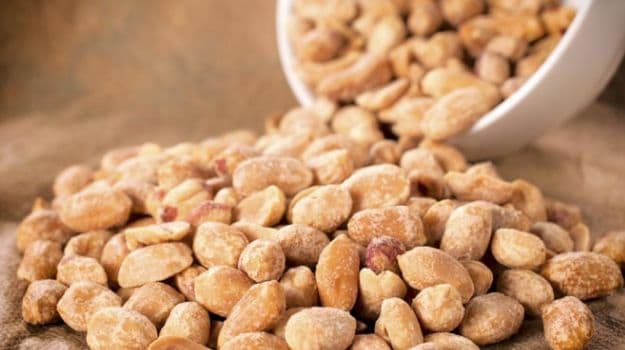We've known that nuts make for a great nutritious snack. Experts agree that healthy snacking in-between meals may help kill cravings and prevent overeating. Nuts can fill you up with protein, fiber, unsaturated fats, and important vitamins and minerals. And a new study puts peanuts in the spotlight. Whether your goal is weight loss or better overall health, researchers recommend snacking on peanuts or peanut butter three to four times a week. According to a new study, teenagers at high risk for being overweight or obese reduced their Body Mass Index (BMI) when they included a handful of peanuts in their diet, in comparison to those children who did not."Obesity is the most pressing health issue facing us today," said Craig Johnston from University of Houston in the US. "We'd like to think it's preventable, but from where I sit right now, there hasn't been a lot shown to be very effective on a large scale," Johnston added in the paper published in the Journal of Applied Research on Children.
The study acknowledged that snacking is more common during the adolescent years and that the unhealthy eating habit can lead to an unhealthy weight. In the 12-week study, instructors guided 257 adolescents from three Houston-area charter schools through a programme of physical activity and nutrition education.About half the students received a snack of peanuts or peanut butter three to four times a week, while the rest received the snack fewer than once a week. Peanuts were chosen because nuts are nutrient-dense snacks that promote a feeling of being full. Students spent 12 more weeks maintaining the healthy snacking habit.The findings showed that students who received the snack more regularly experienced a decrease in their overall BMI compared to those who did not receive the regular peanut snack. After school programmes and schools can replace energy dense, unhealthy snacks with peanuts to provide a healthier alternative for children -- researchers in the study ensured students did not suffer from nut allergies, the researchers concluded.It is often suggested that you combine peanuts with high-protein foods to increase the satiety value. Lot of dieters may shun these nuts due to the high-fat content, but know that peanuts contain the good type of fats called monounsaturated fats that can reduce the risk of heart disease and help lower bad cholesterol. Snacking on a handful of nuts may help you stick to your healthy routine by keeping you full and satisfied for longer, but be careful not to overindulge.With inputs from IANS
The study acknowledged that snacking is more common during the adolescent years and that the unhealthy eating habit can lead to an unhealthy weight. In the 12-week study, instructors guided 257 adolescents from three Houston-area charter schools through a programme of physical activity and nutrition education.About half the students received a snack of peanuts or peanut butter three to four times a week, while the rest received the snack fewer than once a week. Peanuts were chosen because nuts are nutrient-dense snacks that promote a feeling of being full. Students spent 12 more weeks maintaining the healthy snacking habit.The findings showed that students who received the snack more regularly experienced a decrease in their overall BMI compared to those who did not receive the regular peanut snack. After school programmes and schools can replace energy dense, unhealthy snacks with peanuts to provide a healthier alternative for children -- researchers in the study ensured students did not suffer from nut allergies, the researchers concluded.It is often suggested that you combine peanuts with high-protein foods to increase the satiety value. Lot of dieters may shun these nuts due to the high-fat content, but know that peanuts contain the good type of fats called monounsaturated fats that can reduce the risk of heart disease and help lower bad cholesterol. Snacking on a handful of nuts may help you stick to your healthy routine by keeping you full and satisfied for longer, but be careful not to overindulge.With inputs from IANS
Advertisement










